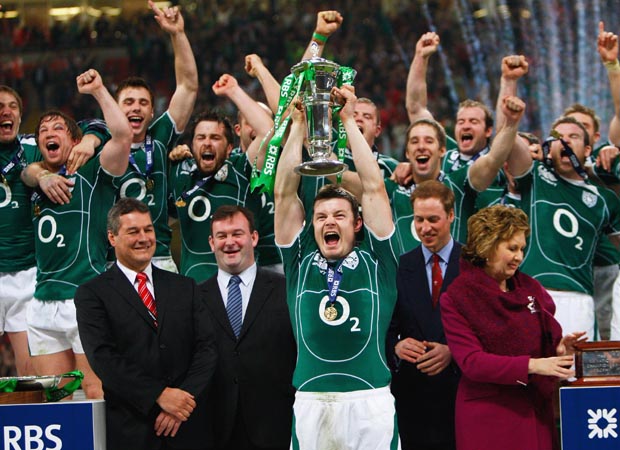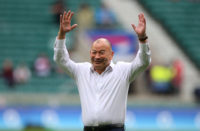 The next Six Nations television deal is expected to be worth at least £50 million a season – a 25 per cent increase on the current figure.
The next Six Nations television deal is expected to be worth at least £50 million a season – a 25 per cent increase on the current figure.
The BBC are prepared to dig deep in their fight to prevent sport’s oldest annual international tournament going the satellite way of The Open Golf, Test cricket, the Football League Championship and Formula One.
Exclusive rights to the Six Nations after the present four-year agreement runs out in 2017 will almost certainly top £200 million over the four years to 2021.
There is no guarantee that £50 million a year will be enough, not with at least one of the Six Nations’ member Unions aiming for a 40 per cent hike towards £60 million a season – £240 million over four years.
The figure underlines the escalating value of a tournament whose box-office appeal reached new heights eleven weeks ago with its climactic finish on ‘Super Saturday’ watched by a record UK audience of almost ten million.
Negotiations began three months ago with the aim of the new deal being signed and sealed before the World Cup kicks-off on September 18.
For the first time the Six Nations has been prepared to listen to offers from Sky and BT Sport. The bidding takes place at a critical time for the BBC after losing the Open to Sky from 2017 and the Football League Championship highlights to Channel 5 from next season.
One source told The Rugby Paper that keeping the Six Nations is about “retaining credibility”. The BBC’s attempt to do so comes with the corporation in the midst of a cost-cutting programme aimed at saving £700m.
The sheer volume of the BBC’s audience leaves the Six Nations with a choice familiar to other sports – trade maximum exposure for Sky’s or BT’s big money but relatively small viewing figures.
English cricket made their choice in 2012, selling their international and domestic game to satellite in a four-year deal reported to be worth £280m. Should the Six Nations choose to follow suit, its disappearance from terrestrial television screens according to one BBC executive would be “a disaster for the game”.
The Rugby Paper understands that in the event of a bidding war pushing the cost towards £60m per season, the Beeb would consider a hybrid deal with a satellite partner. That was described by one insider as “a strong possibility”.
Fears of a sell-out to Sky who hold exclusive rights to the Lions tour of New Zealand in 2017 have provoked a storm of protest with Welsh fans in the vanguard.
More than one third of Wales’ three million population watched the home match against England in February.
WRU chairman Gareth Davies, a former head of sport for BBC Wales, challenged the BBC to pay more for the next contract. “I’d expect an increase,” he told the Welsh language station Radio Cymru. “And it would have to be a substantial increase.”
TV deals have plunged rugby into some serious rucks. The RFU‘s decision to break away from collective bargaining and sell their home matches to Sky led to England being expelled from the 1997 Five Nations.
They were threatened with expulsion again two years later over the same dispute, a crisis averted by RFU chairman Bill Beaumont’s pint-and-a-pie diplomacy at the Drum and Monkey public house in Glasgow with the then Five Nations chairman, Scotland‘s Alan Hosie.
PETER JACKSON
























